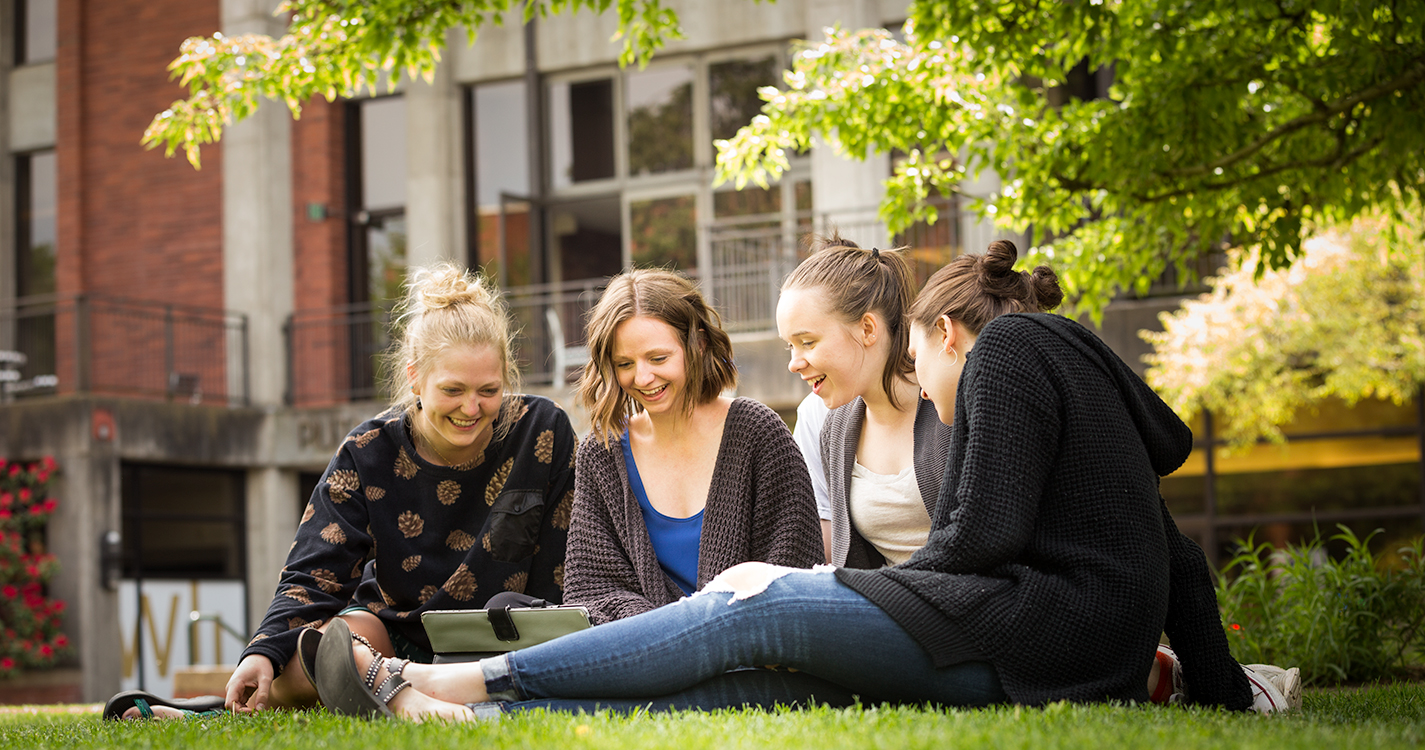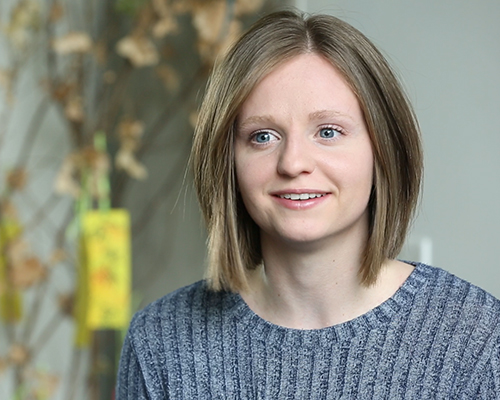During her first year at Willamette, Sierra Wilson ’18 happened to be at home in Utah on break when her father had an accident. Although he felt OK, he was bleeding internally but didn’t realize it. At the last minute, he decided to go to the hospital — a decision that likely saved his life.
As he recovered, Wilson attended his every appointment. Watching her father’s physician, she thought, “Oh, this is something I could see myself doing.”
The experience confirmed Wilson’s interest in a career in medicine — and her next three years at Willamette helped lay the groundwork for that career.
After she graduates this May, Wilson will spend the fall working with a biomedical research team through a scholarship for the National Institutes of Health in Bethesda, Maryland. Of more than 200 applicants, she was among 10–12 chosen.
She’ll spend 10 weeks training on research techniques at the National Heart, Lung and Blood Institute, where she’ll study lipoprotein metabolism, the process by which cholesterol and triglycerides are distributed throughout the body. The scholarship guarantees her a spot on the research team for one year, covers her tuition and provides her with a job after graduation.
New experiences and growth
The opportunity caps off an impressive undergraduate career that began with Wilson — a first-generation student — feeling not prepared for college at all.
Wilson’s parents strongly supported her decision to attend college but didn’t have the experience to offer her guidance. Her first semester was a mess.
“I didn’t know how to study, read a textbook or write an essay,” she says. “It took me awhile to figure out how to study and develop writing skills, and Willamette professors helped a lot with this process.”
Although she was new to college life, she was ready to pursue science — she discovered she loved chemistry during a college course she’d taken during high school. As she debated over working in a lab versus being a physician, she joined the university chapter of the Institute for Healthcare Improvement and the campus’ pre-health majors club.
Wilson also took advantage of the research opportunities available to Willamette students, first using a Green Fund grant to analyze and track waste from the university to the landfill. She also volunteered to do research for Scott Meyer, a visiting assistant professor of chemistry. Together, they have been creating a functional protein biosensor that would detect specific DNA sequences — in other words, a technology that enables researchers to quickly and accurately determine whether a specific gene is present in an organism. This technology could impact the way doctors perceive and treat disease, by showing if a genetic disorder is present or a gene contains a mutation.
The research was fascinating, Wilson says, but she’s a people person and knew she didn’t want to spend all day in a lab. Her year at the National Institutes of Health will help define the next step she takes, including her choice of medical school. She wants to be a physician because of the relationships she can develop with patients.
She’s always been drawn to the combination of science and the human connection. She was reminded of this during a recent human anatomy class, when she held a human heart.
“Then it sort of just hit me — I have a heart just like this inside of me, beating and keeping me alive,” she says. “And it’s beating because neurons are firing and muscles are contracting. The idea of being able to learn about the incredible human body and help and connect with other people just sounds perfect to me.”


